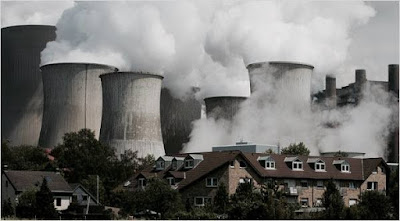Carbon tax - a levy on pollution whose time has come
A carbon tax is a levy on pollution, for the relative cost to humanity of the use of fossil fuels. This cost cannot be tabulated in exact terms, for it’s the accumulated cost of the damage to the environment, human health, and related costs of the use of fossil fuels that can only be estimated. The carbon tax itself is a fee on the production and distribution of fossil fuels. The government sets a price per ton on carbon, then that translates into a tax on oil, natural gas or such things as the electric bill.
Businesses and utilities then have the incentive to reduce consumption, and/ or maintain the market price and absorb the cost of the tax, or pass the added fee on to individual consumers. Individuals would then have the incentive to reduce consumption, increase their energy efficiency habits or face a steeper cost for energy and gas.
The principle of mitigating negative externalities (such as the damage caused by fossil fuels), and having the relative costs of pollution paid for, is the primary purpose of the carbon tax. Who bears the ultimate burden of the tax is a hypothetical question that has a couple of answers. The businesses that produce and distribute fossil fuels should consider bearing the brunt of the tax. In practice, individuals pay more.
A carbon tax is enacted to lower greenhouse-gas emissions. Public transportation, energy efficiency products, and things like clean coal technology become great alternatives to traditional means. One other benefit of a carbon tax, besides the incentives to reduce consumption and increase energy efficiency, is the increased attractiveness of the cost of alternative energy, which is made closer to cost parity with fossil fuels.
Denmark, Finland, Germany, Ireland, Italy, the Netherlands, Norway, Slovenia, Sweden, Switzerland, and the UK have all successfully implemented a partial carbon tax on some goods and services, while not being able to implement a broad, universal carbon tax. Generally, reports of lower greenhouse-gas emissions follow the passage of a carbon tax. In addition, India and Australia, among many other countries, have also successfully enacted carbon tax policies. The province of British Columbia, in Canada, has reported drops of around 5% annually of greenhouse gas emissions due to its aggressive carbon tax policies.

